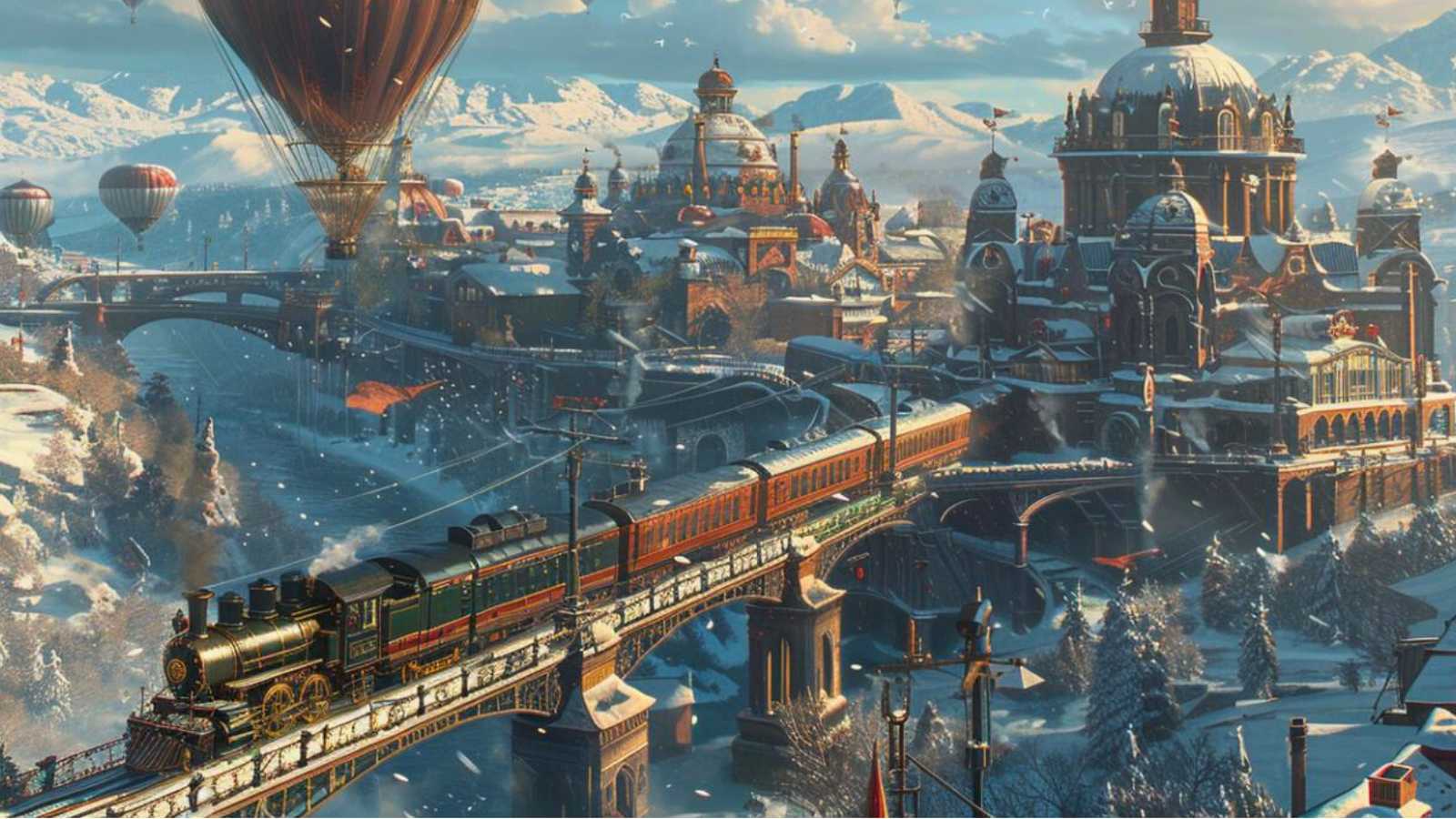
Michel Strogoff—this name resonates like a legendary echo through the vast corridors of literary adventure. Published in 1876, this remarkable novel transcends the boundaries of mere storytelling, emerging as a sophisticated exploration of 19th-century Russia's geopolitical complexities, human psychology, and the inexorable tension between duty and desire. Jules Verne, that visionary French craftsman of narrative architecture, has created more than an adventure tale; he has constructed a literary mechanism that continues to captivate readers across generations with its intricate plotting and profound character development.
Understanding Michel Strogoff: A Literary Definition
Michel Strogoff represents Jules Verne's masterful synthesis of adventure literature and political thriller, set against the backdrop of Imperial Russia. This novel exemplifies the author's genius for combining geographical authenticity with psychological depth, creating a narrative that functions simultaneously as entertainment and serious literature examining themes of patriotism, betrayal, and moral courage.
Jules Verne: The Architectural Genius Behind Michel Strogoff
Jules Verne stands as one of literature's most prescient visionaries, often heralded as a founding father of science fiction and occasionally linked to the steampunk genre. Yet his literary genius extends far beyond any single classification. With "Michel Strogoff," Verne demonstrates his profound understanding of human nature through the prism of epic adventure, weaving together universal themes of courage, loyalty, and betrayal within a meticulously crafted narrative framework.

Verne's fascination with technological progress and scientific advancement found its perfect counterbalance in his acute psychological insight. His work transcends temporal boundaries, continuing to inspire generations of readers who recognize in his narratives both entertainment and profound philosophical inquiry. "Michel Strogoff" exemplifies his narrative mastery, where historical elements, geographical precision, and human drama converge in a symphony of literary excellence that speaks to our deepest understanding of heroism and sacrifice.
Principal Characters: An Ensemble of Literary Archetypes
Michel Strogoff: The Tsar's Courier and Embodiment of Absolute Loyalty
Michel Strogoff transcends the conventional boundaries of fictional heroism, emerging as a complex symbol of unwavering loyalty and moral fortitude. Appointed as the Tsar's personal courier, his mission carries the weight of imperial destiny: to deliver a crucial secret message to the Grand Duke, the Tsar's brother, in the besieged city of Irkutsk. The city stands under threat from the rebellious forces led by Ivan Ogareff, a treacherous former officer whose betrayal threatens the very fabric of Russian sovereignty.
Strogoff's journey across the vast Siberian expanse becomes far more than a geographical traverse—it evolves into a profound spiritual odyssey where every mile tested becomes a measure of his character's depth. His devotion to his sovereign and motherland remains unshakeable, even when confronted with the most formidable obstacles and mortal dangers that punctuate his perilous path through the wilderness.
Ivan Ogareff: The Archetypal Antagonist and Study in Betrayal
Ivan Ogareff embodies the darkest aspects of human nature—treachery transformed into a consuming passion for vengeance. This former colonel of the Russian army, stripped of rank and exiled for his rebellious acts, represents the tragic figure of the fallen patriot turned destroyer. His alliance with the Tartar hordes to invade Russia springs from a wellspring of bitter resentment against the Tsar and the Grand Duke.
Ogareff's character serves as the perfect foil to Michel Strogoff's unwavering loyalty. Where Strogoff represents honor and sacrifice, Ogareff embodies cunning and ruthless ambition. His intellectual capabilities, corrupted by his thirst for revenge, make him a formidable adversary whose confrontation with our hero provides some of the novel's most psychologically intense moments.
Nadia: The Revolutionary Feminine Presence in Victorian Adventure
Nadia emerges as a remarkably progressive female character who defies the conventional expectations of 19th-century adventure literature. The daughter of a political exile, she encounters Michel during his journey and chooses to accompany him—a decision that reveals her autonomous spirit and courage. Initially presented as a young woman in distress, she gradually reveals herself as an invaluable ally whose bravery and determination match those of her male counterpart.
Her character challenges the gender stereotypes prevalent in Verne's era, bringing a sophisticated dimension to the narrative that extends beyond mere romantic subplot. Nadia possesses her own objectives and aspirations, creating a dynamic relationship with Michel that evolves throughout their shared ordeal, adding layers of emotional complexity and psychological depth to the adventure.
The Grand Duke and Imperial Russia: Political Complexity in Literary Context

The Grand Duke functions as more than a secondary character; he represents the embodiment of legitimate authority and governmental stability in Imperial Russia. As the Tsar's brother governing the Irkutsk province, he becomes Ogareff's primary target, symbolizing the complex political and social structures of the era. The novel presents Russia as an immense territory with remote provinces like Siberia, where central authority struggles to maintain effective control.
This geographical and political reality creates fertile ground for characters like Ogareff to exploit systemic weaknesses for their personal gain, illuminating the perpetual tension between imperial ambition and practical governance that characterized 19th-century Russian politics.
The Siberian Odyssey: Beyond Simple Geographic Traversal
Michel Strogoff's journey across Siberia transcends mere adventure narrative, evolving into a profound initiatory experience that transforms the protagonist through systematic trials of endurance and moral choice. Siberia, with its diverse landscapes and natural challenges, serves as both geographical setting and metaphysical space for character development.
The protagonist must navigate not only physical obstacles—rivers, mountains, and forests—but also emotional and moral challenges that test every aspect of his character. Each stage of the journey becomes a crucible for examining his courage, determination, and resourcefulness. Siberia thus becomes a character in its own right, reflecting the emotional highs and lows of Michel Strogoff's internal transformation.
Adaptations and Cultural Legacy: Michel Strogoff Beyond Literature
The enduring appeal of "Michel Strogoff" has generated numerous adaptations across various media platforms, including films, television series, graphic novels, and theatrical productions. These adaptations have contributed to perpetuating the legacy of this timeless work while introducing Verne's narrative to successive generations of audiences worldwide.
Each adaptation brings its unique interpretative lens, highlighting different aspects of the original narrative while maintaining the essential core of Verne's vision. Whether through the cinematic medium, graphic storytelling, or live performance, the fundamental essence remains consistent: an epic tale of courage, loyalty, and sacrifice that speaks to universal human experiences and values.
Critical Analysis: Themes and Literary Significance
From a literary perspective, "Michel Strogoff" operates on multiple interpretative levels. On its surface, it functions as a thrilling adventure story; beneath this accessible exterior lies a sophisticated examination of political loyalty, personal sacrifice, and the psychological mechanisms that drive individuals to extraordinary acts of heroism.
Verne's narrative technique demonstrates remarkable sophistication in balancing action with character development, creating a work that satisfies both popular entertainment expectations and serious literary analysis. The novel's exploration of Russian political and social structures provides historical insight while its psychological portraits offer timeless reflections on human nature and moral choice.
Frequently Asked Questions: Understanding Michel Strogoff
Why is Michel Strogoff considered a literary hero?
Michel Strogoff embodies heroism through his exceptional courage, unwavering loyalty to the Tsar, and willingness to sacrifice his personal welfare for his country's greater good—qualities that transcend his fictional context to represent universal ideals of heroic behavior.
What drives Ivan Ogareff's primary motivation?
Ogareff is motivated by a complex psychology of vengeance and betrayal, seeking to overthrow the Tsar and seize control of Russia as compensation for his perceived injustices and professional humiliation.
Why did Jules Verne choose Siberia as the setting for this story?
Siberia provides an exotic and dangerous backdrop that amplifies narrative tension and mystery while serving as a geographical metaphor for the challenges that reveal Michel Strogoff's heroic qualities through systematic trials of endurance.
What role does Nadia play in the narrative structure?
Nadia functions as both a courageous ally and source of inspiration for Michel, representing a progressive female character who defies Victorian-era gender conventions while adding emotional depth and complexity to the adventure.
Does the novel have historical foundations?
While the story is fictional, Verne grounded his narrative in careful research of Russian history, geography, and political structures, creating a realistic foundation that enhances the story's credibility and educational value.
What are the principal lessons readers can derive from this novel?
The novel teaches the paramount importance of courage, loyalty, and sacrifice while illuminating the complexities of human nature and the moral dilemmas that define character in moments of crisis and decision.

"Michel Strogoff" emerges as far more than conventional adventure literature; it represents a profound exploration of human nature, moral courage, and the complex psychology of loyalty under extreme duress. Through the compelling journey of its protagonist and the exotic yet meticulously researched Siberian setting, Jules Verne offers readers a timeless narrative that continues to captivate audiences across generations and cultural boundaries.
Whether you approach this masterpiece as a longtime devotee of Verne's literary universe or as a newcomer to his remarkable oeuvre, "Michel Strogoff" provides multiple layers of meaning and enjoyment that reward both casual reading and serious literary analysis. It stands as a testament to Verne's genius for combining entertainment with profound insight into the human condition, creating literature that endures because it speaks to our deepest understanding of heroism, sacrifice, and the indomitable human spirit.









